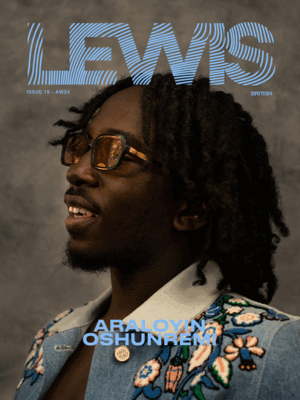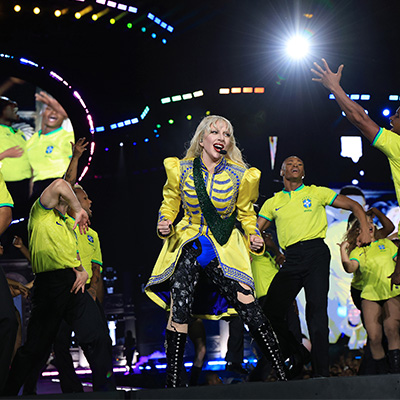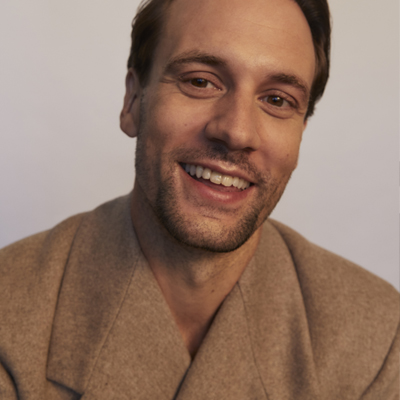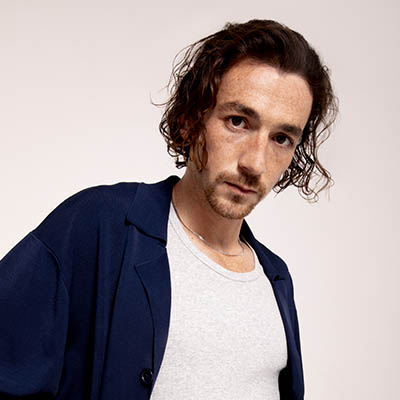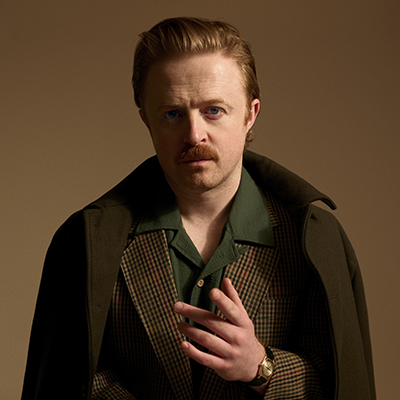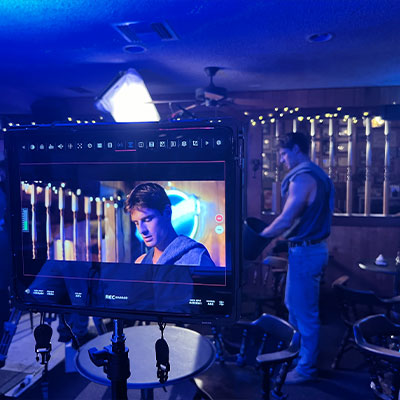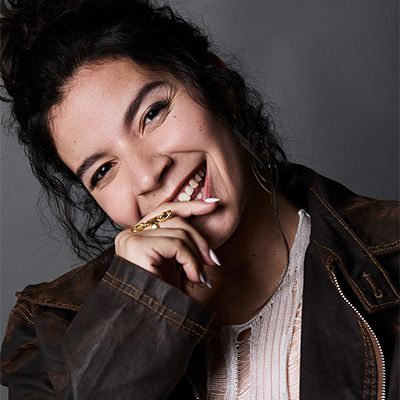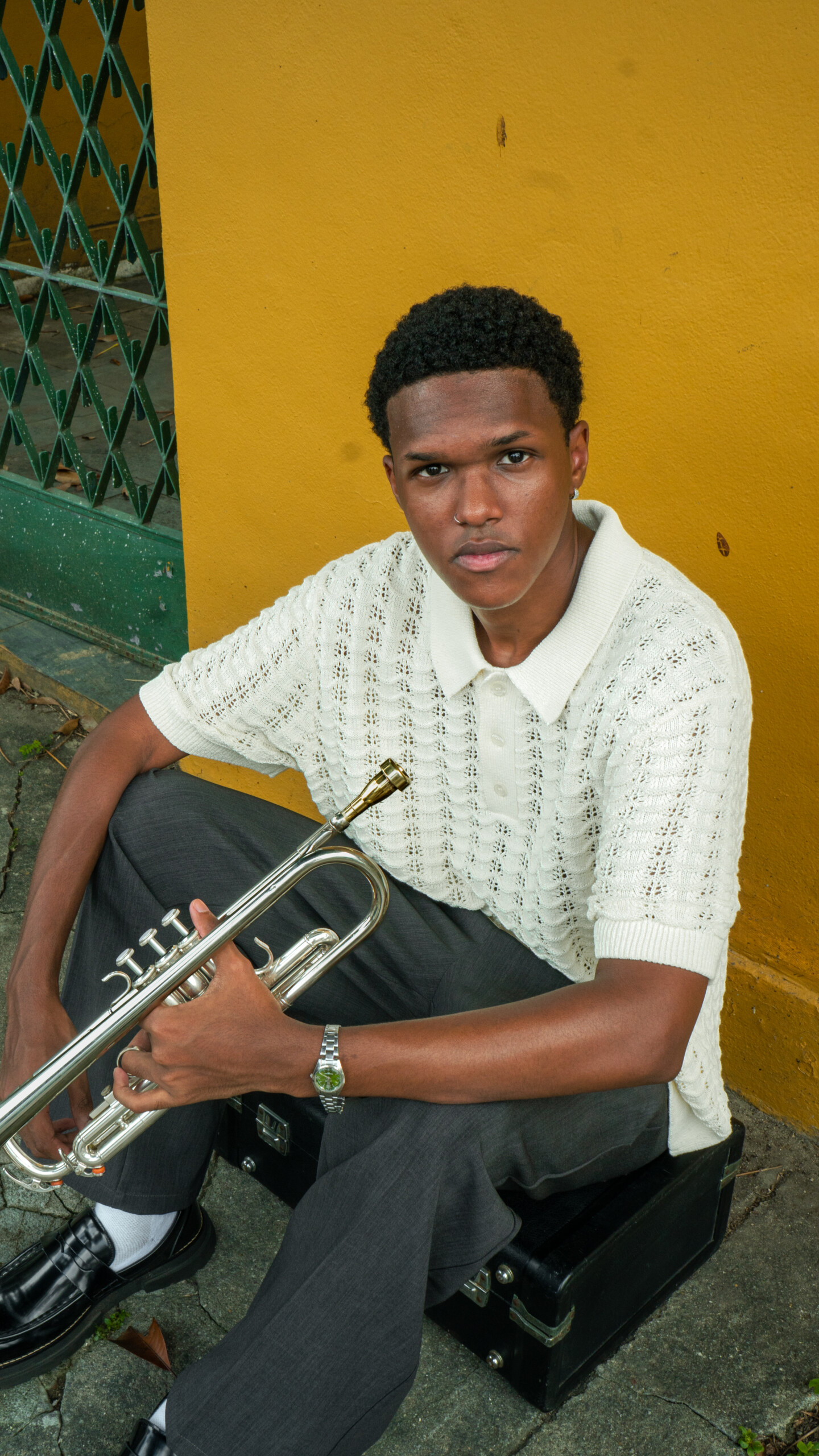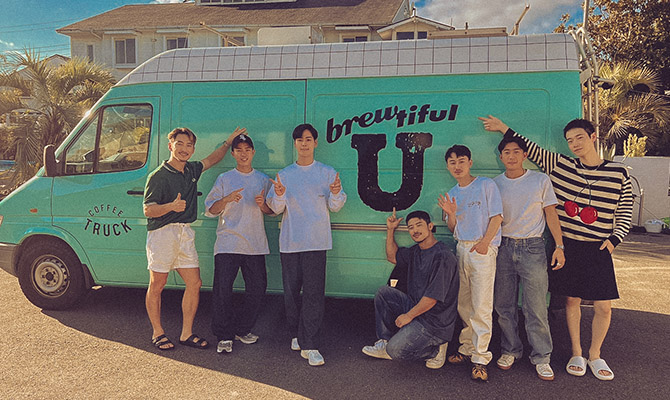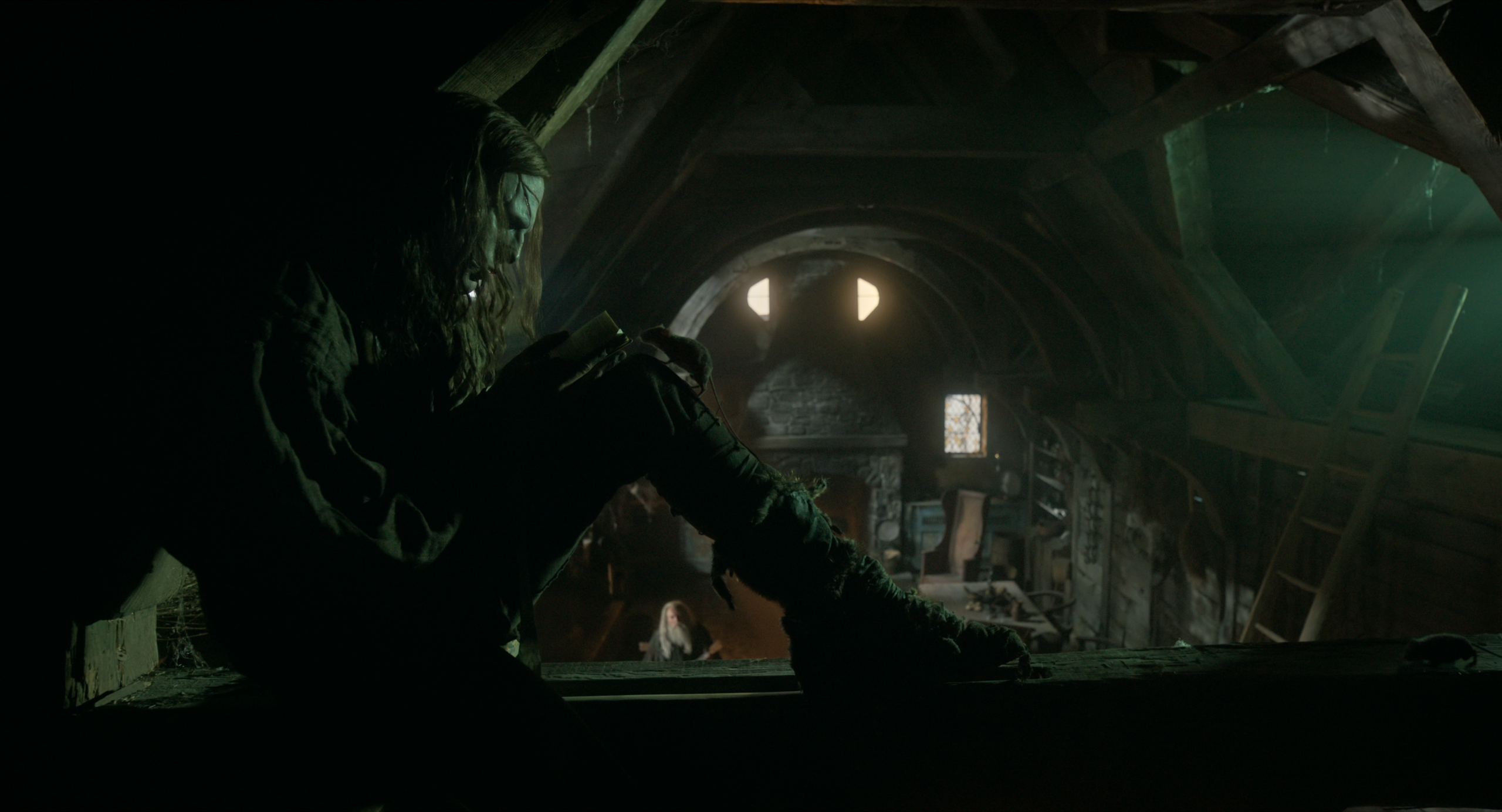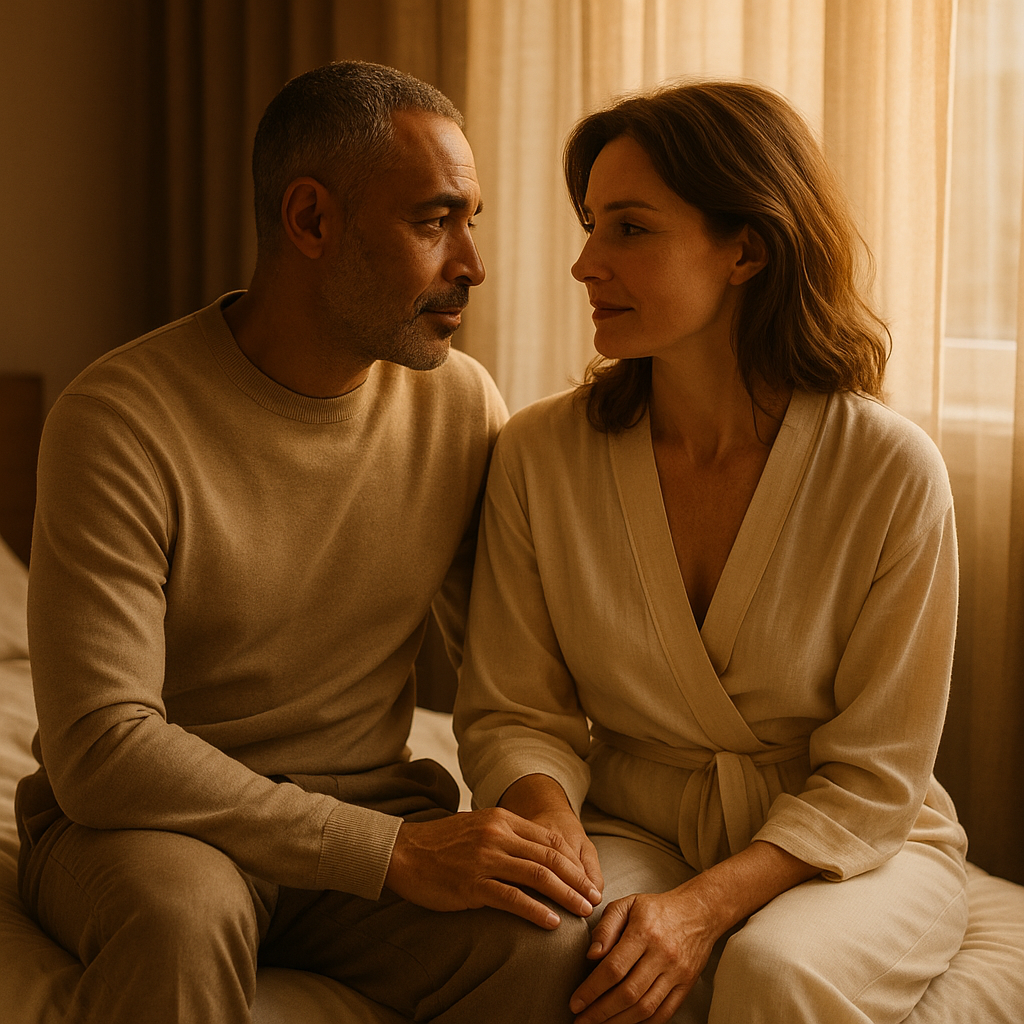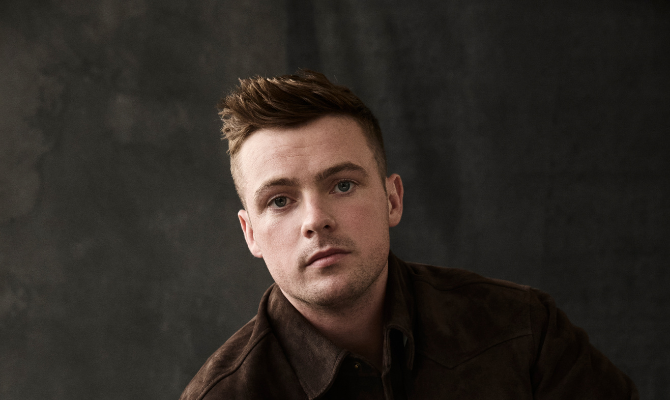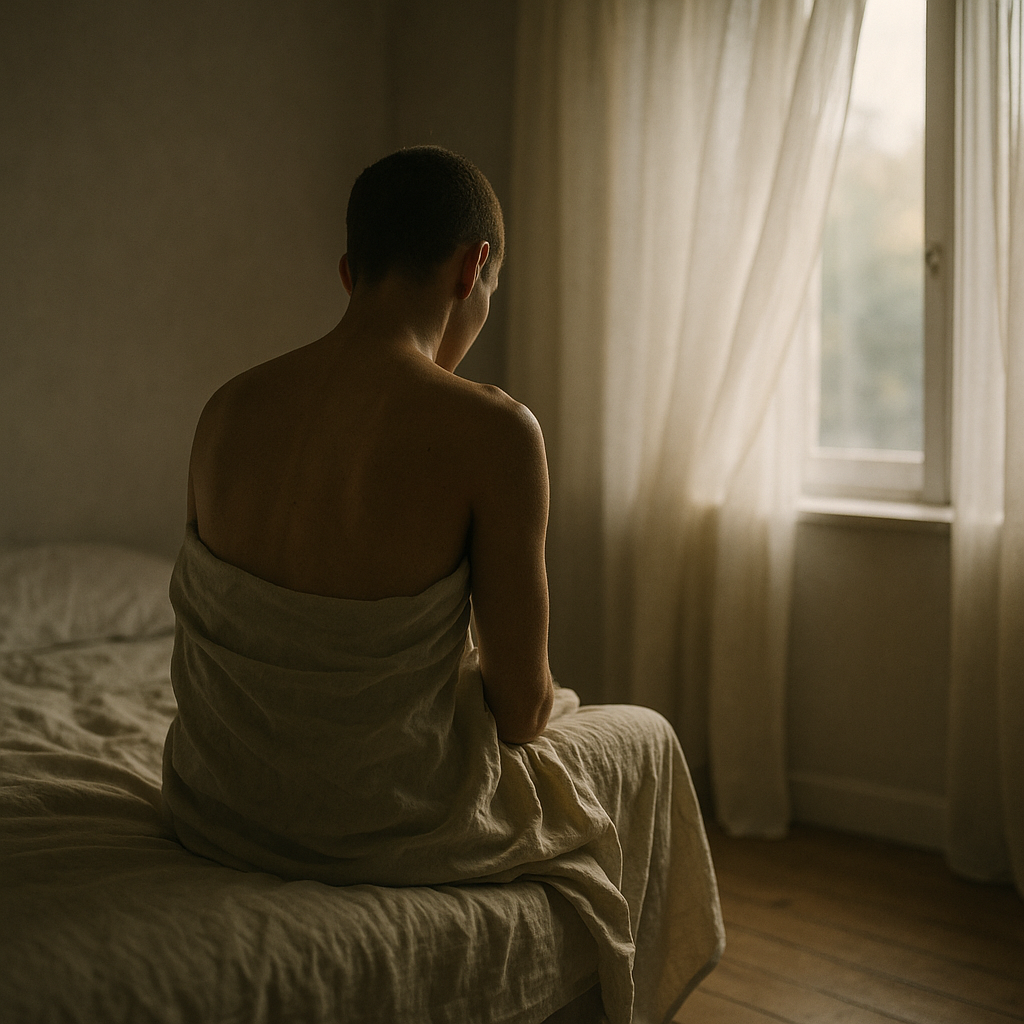In an exclusive interview with our Talent Features Editor, Sofia Deus, Eve Austin, the brilliant actress embodying the resilient character Jeannie Keefe in the groundbreaking series “This Town,” shares her profound insights into the series’ rich narrative tapestry. From her deep admiration for Steven Knight’s masterful storytelling to the transformative power of ska music and the portrayal of authentic friendships on screen, Eve unveils the intricate layers of her character’s journey and the broader themes resonating with audiences today. Join us as we delve into the captivating world of “This Town” through the eyes of its talented star, Eve Austin.
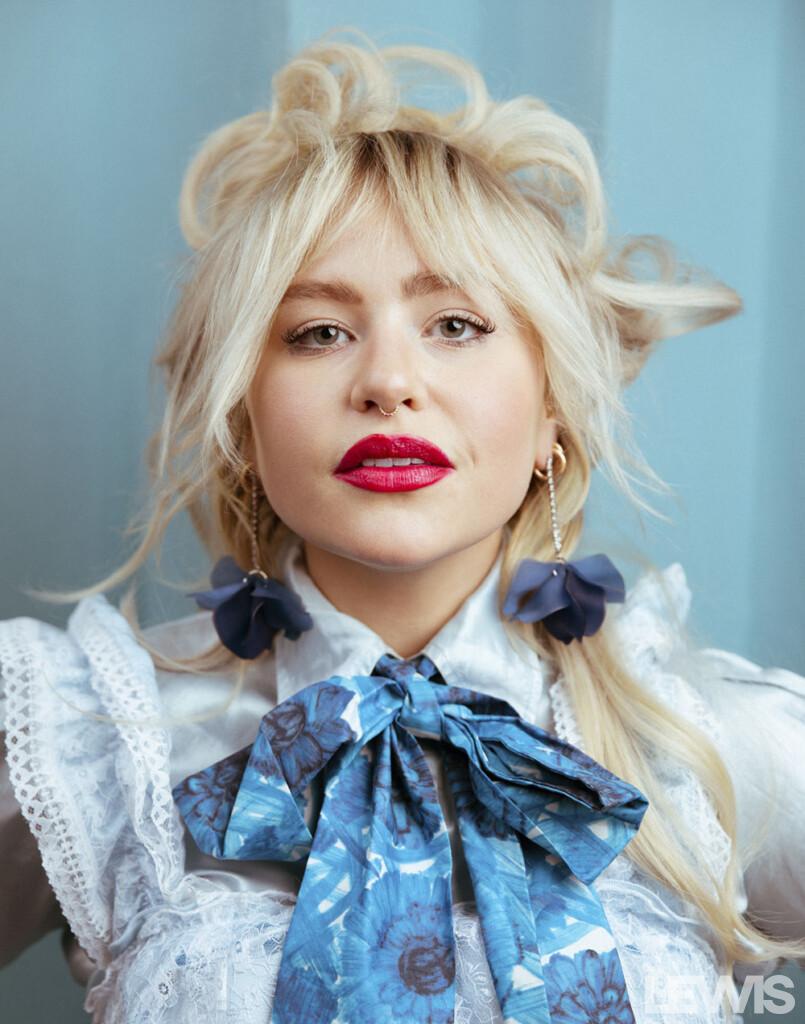
Photography @Stewart Bywater
1- Your role in ‘This Town’ seems to be a departure from your previous work. What drew you to the character of Jeannie Keefe and the overall story of the series?
First of all, it’s a Steven Knight drama! I think any actor would be knocking on his door to work with him because of the success of all his other projects. But genuinely, when I first read the script I was blown away by the way that he had written the part of this woman and how three dimensional, feisty, fierce she is and how much she matched the energy of her male counterparts. But particularly, I really, really love the friendship that plays out between Jeannie and Dante. Because it is a totally platonic, beautiful friendship that I don’t think we often get to see on screen. So, I was really excited to be able to represent something that I have experienced in my life and haven’t seen played out on screen much.
2- ‘This Town’ explores the rise of ska and two-tone music in the 70s and 80s. Did you have any familiarity with this genre before taking on the role? And did you prepare to portray this aspect of the cultural landscape?
Yeah, so the music is very much described as the beating heart of our show. And it really is! I didn’t grow up with ska music as such, so it was new to me to learn about it and listen to it. I think it was a musical education for me. I very much grew up with reggae; I listened to a lot of Bob Marley growing up. I had a head teacher at primary school who played Bob Marley every single morning as we came into school. It is just legendary. But reggae undertones are a part of ska, you know, it was the merging of reggae and punk. So, it certainly felt remarkably familiar to me. That was a wonderful thing. There were quite a lot of full circle moments for me on this job with it being in the Midlands (I am from the Midlands) and our director was from the Midlands too. And then to also have this music that felt like home. So that was really lovely.
3- Working with renowned writer Steven Knight must have been an enriching experience. Can you share any memorable moments or insights from collaborating with him on the set of This Town?
Yeah, Steven is an amazing man and he has achieved so much. If you look at his work record, it’s on another level to what anyone else is doing. But he’s also incredibly grounded, and like proper salt of the earth. What I have taken from that is to not let things get to your head. If someone with Steven Knight’s kind of CV can walk into a room and treat everybody with the same levels of respect, I think that’s leading by example. For me, as a young actor, I’m so grateful for that. But he was just deeply passionate about this story, and that came through. So, I think that fed into all departments and it really was one of those jobs where I think every department loved the work they were doing. So even through tricky points, everyone stuck around to finish it. And I do think that always comes from the top.
4- This Town captures the essence of a specific time-period, marked by social tensions and upheaval. How do you think the series resonate with your distance today, especially considering the current socio-political climate?
I think, sadly, it is all too familiar with things that are happening in the world currently as well as the polarised society that we still very much live in. But in some ways, it’s nice to present that through art because there’s still a lot of hope in our story. People still have dreams, and they have dreams for a better life for themselves. I hope that by seeing this story being told, and maybe seeing themselves reflected in our stories, it might inspire people. It’s a real reflection of the world as it still is. So, the fact that it’s 40 years on from that is very disappointing, and not at all where I think these kids that we see in the show would have hoped to have been. I think that would have been quite discouraging.
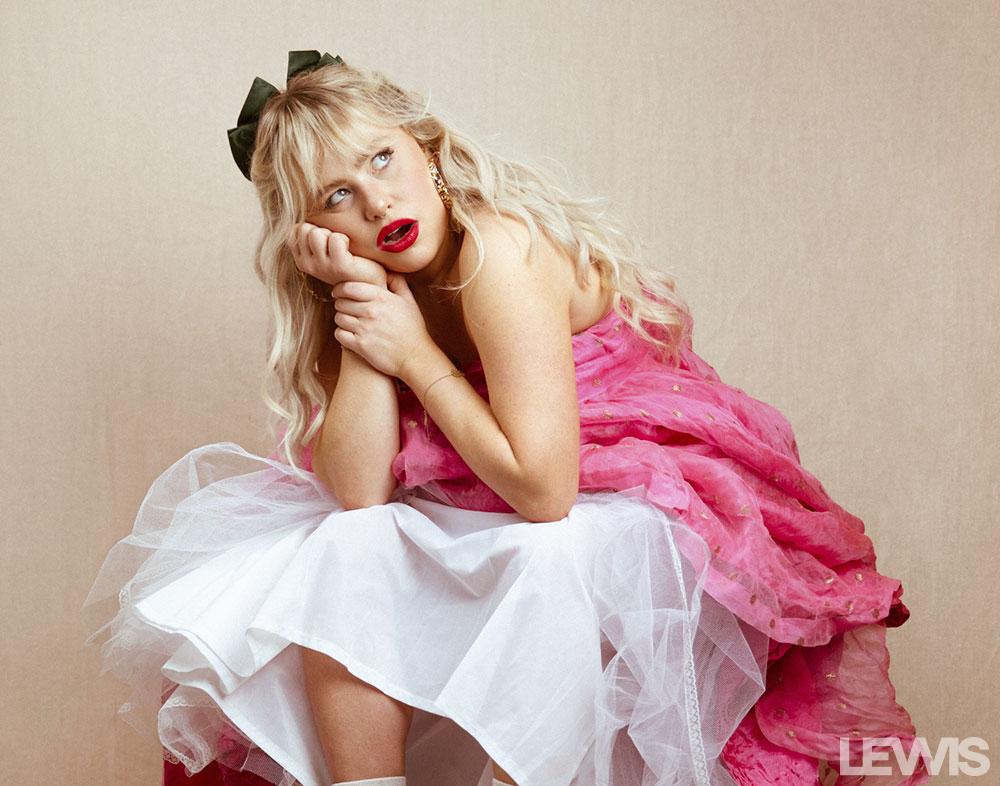
Photography @Stewart Bywater
5- Your character, Jeannie Keefe, is depicted as part of a band navigating their way through challenges. What aspects of Jeannie’s journey did you find most compelling? And how did you approach bringing her story to life?
So, we don’t see an awful lot of Jeannie’s home life and it doesn’t ever really delve into it too much. But obviously, as an actor, you like to kind of build a backstory from what you have. From what I was reading, and some of the things that Steven had put in this script, was that I think she does come from a really difficult home life. I think all these kids have grown up on a council estate with not very much money. I also think Jeannie has these difficult relationships with the men in her life. Her father is alluded to as not being a very nice man, and then we meet her boyfriend who is incredibly abusive. I think, as a woman, those kinds of stories always resonate with you because whether it’s your experience, or someone you love, a friend or family member, I think it’s always quite an honour to tell those women’s stories. I hope that if this goes on further, that’s something that we explore more of. he has a very tough exterior, and I think people who have tough exteriors often have a lot of vulnerability behind that. When we see glimpses of that, I think it will really resonate with a lot of people.
6- From Our Ladies to This Town, you’ve showcased versatility across different projects. How do you choose your roles? And what attracts you to a particular script?
That’s a funny question as I’m still very much a jobbing actor in a lot of ways. You know, a job is a job, and that will always be the main benefit. But certainly when a script like this comes along! I audition for hundreds of jobs a year, and it’s rare that you read a script that makes you feel this way. I think what it comes down to is it’s quite hard to write young characters because young people are so complex. They’re so interesting. I have young siblings and they’re so intelligent. I often think that can get missed in scripts written by adults. And in both of those roles, I was playing someone younger than I am, but I think it really captured this kind of beautiful curiosity for life, and this kind of vibrancy that often kind of goes in your 20s. I think in both cases, they’ve just left off the page – their energy and their excitement for everything. I think that is why those were special jobs to be a part of.
7- This series highlights the power of music as a unifying force. How do you think the betrayal of music in This Town adds depth to the narrative of the character’s journeys?
Yes, so the music really is the element that brings all these people together. Without the music, they would never have found each other, and I think that’s quite the beautiful symbolism of music in general. It’s like this beautiful thing that everybody gets to share, and dance and sing. It really does feel like a form of escapism in that time more than ever because they never had mobile phones and people weren’t always listening to it on the go. So going to the pub at night and hearing live music was a real salvation and it kept people going. It kept people getting up and going to work in the morning because they knew they were going to listen to music at the pub later with their friends and have a moon stamp. I think it’s a beautiful thing to bring people together.
8- This Town was not only delving into the music scene, but also explores themes of family, friendship and identity. How do you navigate the complexities of the interpersonal dynamics while portraying Jeannie?
I mean, the kind of friendship element, as I spoke about earlier, was really what drew me to the role, particularly this friendship that she has with Dante. They do go on and form lots of friendships with each other whilst they create the band. Within that they become their own family, their chosen family, and they really need each other. I think that is true to life, and certainly true to my experience of life that your friendships are the driving force for existing to me. They should be nurtured and protected in the same way that I think we value romantic relationships. So, it’s lovely to see how important that is to these young people in the show.
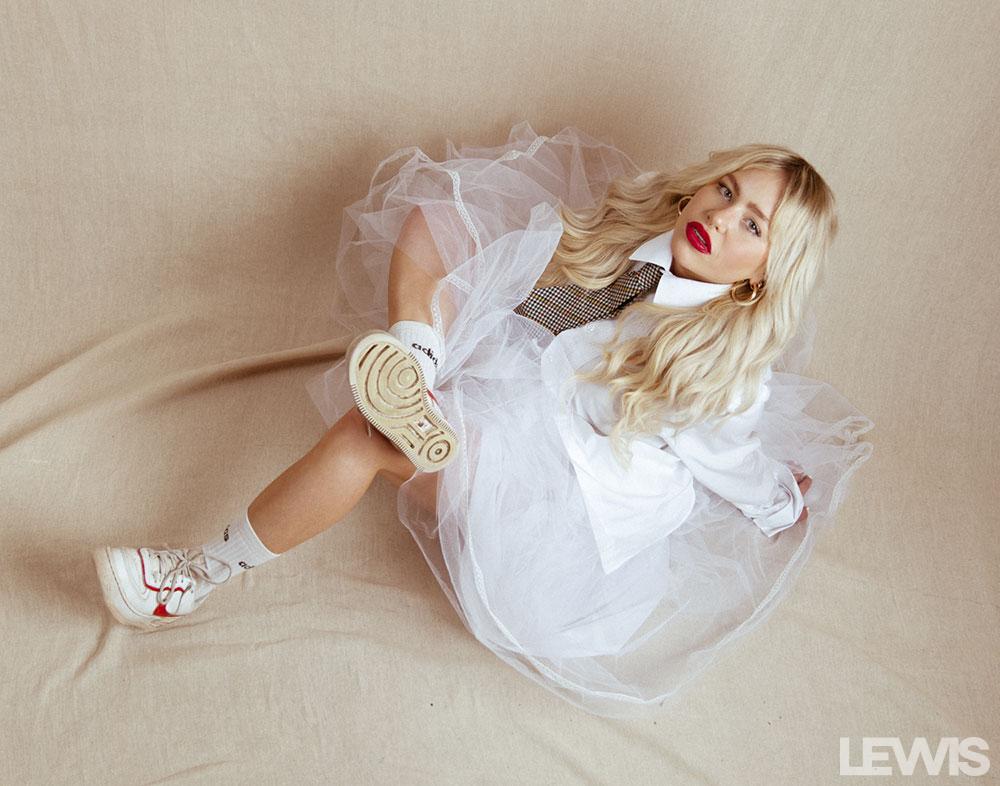
Photography @Stewart Bywater
9- Working alongside talent actors like Michelle Dockery and Nicolas Pinnock must have been an enriching experience. Can you share any anecdotes from your time on set with the cast?
I sadly didn’t get to film any scenes with Michelle, Nicolas or Geraldine James, who’s a wonderful actor. But I have gotten to know them as people, and they were so professional in their work. They were so generous with their wisdom and advice for the industry and there was no ounce of hierarchy in the cast. As I’ve said before, we’re with Steven Knight and these amazing actors, and the way they behave really matters as it really affects how everyone else behaves; they lead the set by example. They gave us all their numbers straight away for if we ever needed anything, and they really looked out for us. From that experience, I already look forward to the time when I can pay that forward to a bunch of young actors, and just be a bit of a guiding light. We were lucky to have people who were passionate about the job as well. They’ve done hundreds of jobs and they were so passionate about this one, they loved it. They’re lovely.
10- As an actor, what do you hope audiences take away from This Town after watching the series? And personally, what did you learn or gain from your involvement in this project?
I really hope that, particularly, Midlanders feel very represented. I hope that we’ve done Birmingham justice and portrayed it in all it’s beautiful glory because it is such a beautiful city. I hope that people just feel really seen and feel their stories matter. It’s not often that we see regional towns displayed in such a glamorous way. I was at the premiere last night with a Birmingham audience and you could just see the pride that people had. They recognised the places they lived in and the family that they had over, and that’s really who it is for. I really hope it encourages production companies to invest more into their regional areas and their regional crews and actors because their stories are ones that people want to see. Their stories matter. For me personally, any job is only as good as the people that you work with, and I have made some wonderful, wonderful friends for the rest of my life. So, whatever happens with this, and obviously we hope and pray that it’s super successful and we carry on for years, I have still made some best friends for life. For me, that kind of trumps all of it, and I’m incredibly grateful for that.





